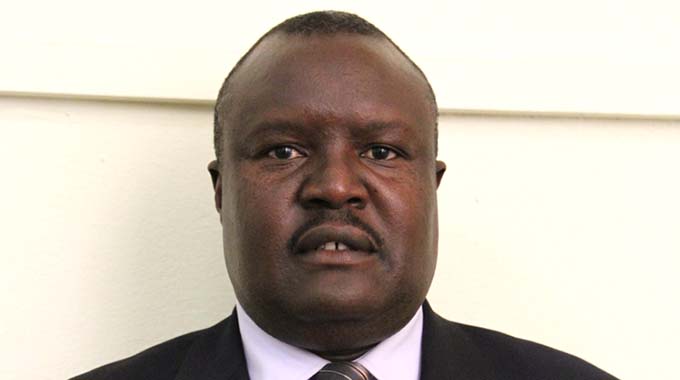The Star FM team raising awareness on albinism

In recent weeks media outlets in the US have been fretting over what would ordinarily be considered good news — the roaring American economy, which has brought low unemployment and, in some places, a labour shortage. Owners and managers have complained about their problems in finding people to fill low-wage positions. “Nobody wants to do manual labour any more,” as one trade association grandee told the Baltimore Sun, and so the manual labour simply goes undone.
Company bosses talk about the things they have done to fix the situation: the ads they’ve published; the guest-worker visas for which they’ve applied; how they are going into schools to encourage kids to learn construction skills or to drive trucks. The Wall Street Journal reports on the amazing perks that plumbing companies are now offering new hires: quiet rooms, jetski trips, pottery classes, free breakfast, free beer.
But nothing seems to work. Blame for the labour shortage is sprayed all over the US map: opioids are said to be the problem. And welfare, and inadequate parking spaces, and a falling birthrate, and mass incarceration, and — above all — the Trump administration’s immigration policies. But no one really knows for sure.
So the labour shortage runs on, frightening and out of control, with journalists trying to build it into some kind of nightmare scenario. There is a “crab crisis” in the Chesapeake Bay region. There’s no one to harvest the strawberries in Ohio. A beloved bakery outside Denver has closed. Plans for a retirement community near Tucson, Arizona, have been cancelled. Managers and officials alike demand that the government furnish them with the cheap workforce to which they are accustomed.
The textbook solution to the labour shortage problem — paying workers more — rarely merits more than a line or two, if it’s mentioned at all. So unwilling are business leaders to talk about or consider this obvious answer that Neel Kashkari, the president of the Minneapolis Federal Reserve Bank, scolded them last year: “If you’re not raising wages, then it just sounds like whining.”When the necessity of higher wages is acknowledged, however, it only seems to crank the whining to a higher pitch. Take for instance the Washington Post’s front-page panic attack: “Trucker shortage poses economic threat”. Here the problem of trucks sitting idle for lack of drivers is compounded by the even more infernal possibility that those drivers, when they finally do show up, might be in a position to bargain for better pay, a prospect described as “perilous” because it could drive up prices “so quickly that the country faces uncontrolled inflation, which can easily lead to a recession”.
The left-leaning economist Dean Baker immediately pointed out what an outrageous exaggeration this is: even if truckers were to win a huge pay increase it would only amount to a tiny fraction of US GDP – and guess what, they’re not getting such a windfall. Adjusted for inflation, trucker wages are still well below their peak. Still, it is hard to miss the point of the labour-shortage panic: affluent America is terrified by the prospect of increased bargaining power for working people.
The economic reality, however, is not quite there yet. If you study the Bureau of Labor Statistics’ numbers on wages for nonsupervisory workers over the past few decades, you will notice that wage growth has been strangely slow to pick up. Hot economies usually drive wages up pretty promptly; this recovery has been running since 2009 and it has barely moved the needle.
It’s even more perverse on the other side of the Atlantic. According to a 2017 story in the Financial Times, Britain was “the only big, advanced economy in which wages contracted while the economy expanded” — an amazing achievement if you think about it. And UK think tank the Resolution Foundation has said this decade is “set to be the worst for pay growth since the Napoleonic wars”.
How could such a thing happen in this modern and enlightened age? Well, for starters, think of all that whining we’re hearing from the US’s management, who will apparently blame anyone and do anything to avoid paying workers more. Every labour-management innovation seems to have been designed with this amazing goal in mind. Every great bipartisan political initiative, from free trade to welfare reform, points the same way. When Republicans are in charge, it’s open season on working-class organisations. And you can forget about increases in the minimum wage, regardless of who’s in the White House.
Of course it’s happening the same way in the UK; be it Thatcher’s war on unions or New Labour’s “third way”, Britain has followed the US model closely. Political decisions within both countries have had highly predictable results, and we are now fated to live with them. Good times aren’t really all that good for ordinary people any more, only for the people on top – the owners of companies, of real estate, of stocks. Except in the very tightest labour markets, workers simply don’t have the power to demand their fair share.
If you ask me, this is the thing to panic about: not the possibility that workers might prosper, but that they’re not prospering yet.
According to Josh Bivens, of Washington’s Economic Policy Institute, you can trace the slow decline of US workers’ bargaining power in the historical statistics. As the years go by, it requires ever lower levels of unemployment to ignite the wage growth that was once the hallmark of good times.
“The decades-long campaign by employers to kick away any sources of economic leverage enjoyed by typical workers seems to have worked,” he tells me. “These workers now get real wage increases only during white-hot labour markets.”
This is the central story of the last four decades, the vast social engineering project to which all our recent presidents and both parties have contributed. Next to this stupendous transformation, all the culture wars and flag-fights and stupid tweets fade into insignificance.
But there’s a bright side: if the US economy continues to roar as it has been doing, there is no question that wages will eventually go up. All the free beer in the world can’t drown out what’s coming.
I’m not afraid of this. It is not a “threat” when workers do well. But if you need a dash of terror to get your day started, here it comes: when robust wage growth finally shows itself, Donald Trump will be the one who demands the credit for it. And there’s a chance the people of the US might just give it to him. — The Guardian.










Comments